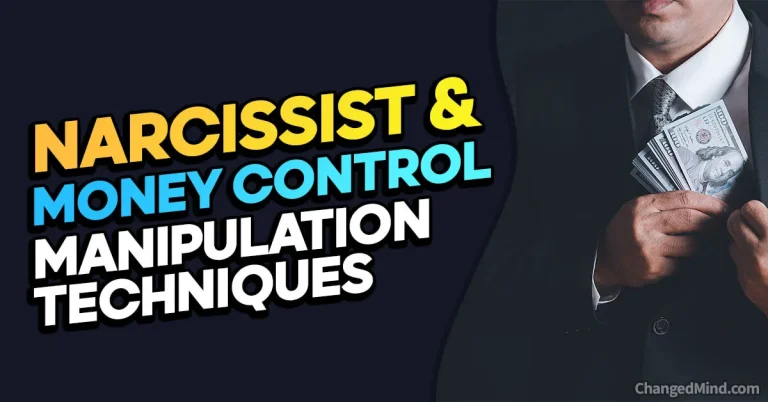Ah, love! The warm fuzzies, the butterflies in your stomach, the soaring romantic gestures…but what happens when Cupid’s arrow strikes a narcissist? Can a self-absorbed soul truly experience that magical feeling we call love?
Well, brace yourself, dear reader, because we’re diving deep into the captivating world of narcissistic relationships.
In this article, we’ll unravel the enigma, unveil the truth, and explore the complexities of whether a narcissist can actually fall head over heels. So, fasten your seatbelts, grab some popcorn, and let’s embark on this exhilarating rollercoaster of love…or something like it.
Can a Narcissist Fall in Love?
Short Answer: Yes, a narcissist can fall in love, but it’s a love shrouded in layers of self-interest and complexity. Intrigued? Read on to discover the fascinating intricacies of narcissistic relationships and the challenges they present in the realm of love.
Definition of Narcissism and Narcissistic Personality Disorder (NPD)
Narcissism stems from the Greek myth of Narcissus, a figure who fell in love with his own reflection. In psychological terms, it represents an excessive preoccupation with oneself, often at the expense of others. Narcissistic Personality Disorder (NPD) is a diagnosable mental health condition in which individuals display an inflated sense of self-importance, a constant need for admiration, and a lack of empathy.

Brief Overview of Common Traits and Behaviors Exhibited by Narcissists
Narcissists exhibit a wide range of traits and behaviors, which can vary in intensity from person to person. Here are some common characteristics:
- Grandiosity: Narcissists have an exaggerated sense of self-importance and believe they are superior to others.
- Entitlement: They often expect special treatment and have a sense of entitlement.
- Lack of Empathy: Narcissists struggle to understand or relate to the feelings and needs of others.
- Manipulation: They use manipulation tactics to exploit and control others for their own gain.
- Attention-seeking: Narcissists crave constant attention, admiration, and validation.
- Lack of Accountability: They rarely take responsibility for their actions and may deflect blame onto others.
Now that we’ve laid the groundwork, let’s explore the question: Can a narcissist truly fall in love?
Understanding the Narcissist’s Perspective on Love
Now that we’ve established some groundwork about narcissism and its traits, let’s take a closer look at the narcissist’s perspective on love. Understanding how they view love can shed light on the complexities of their relationships.
Exploring the Narcissistic Concept of Love
For a narcissist, love often revolves around their own needs and desires. They may see love as a means of receiving constant admiration and validation rather than as a selfless, reciprocal bond. To them, love is about obtaining narcissistic supply, feeding their insatiable ego and self-importance.
While they may engage in behaviors that superficially resemble love, such as expressing affection or showering gifts, these actions often serve as tactics to secure attention and admiration rather than genuine emotional connection.
The Role of Admiration and Validation in the Narcissist’s View of Love
Admiration and validation play a pivotal role in the narcissist’s perception of love. They thrive on receiving constant praise, compliments, and attention from others, using it as a means to boost their self-esteem. When they feel admired, they may interpret it as a form of love, even if the admiration is shallow or insincere.
In a relationship with a narcissist, you may notice their insatiable hunger for admiration. They may constantly seek validation from you or expect you to fulfill their ever-growing need for praise. Their self-worth often relies heavily on external validation, making it difficult for them to develop a genuine and sustainable emotional connection.
Superficial vs. Genuine Emotional Connection in Narcissistic Relationships
Narcissistic relationships are often characterized by superficial connections rather than deep emotional bonds. While the narcissist may appear infatuated or “in love” during the initial stages, this intensity tends to wane over time as their true self-centered nature emerges.
It’s important to understand that the emotional connection a narcissist seeks is typically focused on fulfilling their own needs, rather than understanding and empathizing with their partner. Genuine emotional intimacy, which involves vulnerability, empathy, and mutual support, is a significant challenge for narcissists due to their inherent lack of empathy and self-centered mindset.
In a narcissistic relationship, you may find yourself longing for a deeper emotional connection and feeling frustrated by the superficiality and constant focus on the narcissist’s needs.
Remember, navigating relationships with narcissists requires careful consideration and self-awareness. Understanding their perspective on love can help you make informed decisions and set healthy boundaries. In the next section, we’ll delve into the challenges faced in narcissistic relationships and shed light on whether a narcissist can truly experience love.
Challenges in a Narcissistic Relationship
Being in a relationship with a narcissist poses various challenges that can significantly impact your emotional well-being. Let’s delve into some of the key obstacles you may encounter in a narcissistic relationship.
Lack of Empathy and Emotional Reciprocity
One of the most notable challenges is the narcissist’s lack of empathy. Empathy is the ability to understand and share the feelings of others, and it forms the foundation of deep emotional connections. Unfortunately, narcissists struggle with empathizing, as their self-absorption and focus on their own needs inhibit their capacity to truly understand and connect with your emotions.
In a narcissistic relationship, you may find yourself longing for empathy, validation, and emotional support that the narcissist simply cannot provide. It can be emotionally draining when your feelings are dismissed, invalidated, or overshadowed by the narcissist’s own self-centeredness.
Manipulation and Control Tactics Used by Narcissists
Narcissists are skilled manipulators who use various tactics to control and exploit those around them. They may employ gaslighting, where they manipulate your perception of reality, making you doubt your own thoughts and feelings. Other common manipulation techniques include guilt-tripping, blame-shifting, and playing mind games to maintain power and control in the relationship.
These manipulative behaviors can erode your self-confidence, leaving you feeling confused, helpless, and doubting your own judgment. It becomes challenging to maintain a healthy and balanced relationship when trust is constantly undermined by the narcissist’s manipulations.
The Cycle of Idealization, Devaluation, and Discard
In narcissistic relationships, there is often a repeating pattern known as the cycle of idealization, devaluation, and discard. Initially, the narcissist may idealize you, showering you with attention, affection, and compliments. You may feel like you’ve found your soulmate, swept off your feet by their charm and apparent love.
However, as the relationship progresses, the narcissist’s true colors start to emerge. They may begin devaluing you, criticizing your flaws, and diminishing your self-worth. The once-loving partner becomes emotionally abusive, belittling your achievements and manipulating your emotions. Eventually, the cycle leads to a discard phase, where the narcissist abruptly ends the relationship or withdraws affection and attention.
This rollercoaster of emotions and inconsistent treatment can be deeply distressing, leaving you feeling emotionally drained and uncertain of your worth.
Impact of Narcissism on the Partner’s Self-esteem and Well-being
Being in a narcissistic relationship can have a profound impact on your self-esteem and overall well-being. Constant criticism, manipulation, and lack of emotional support can gradually chip away at your self-confidence and self-worth. You may begin to question your own abilities, feeling inadequate and unworthy of love.
Additionally, the unpredictable nature of narcissistic relationships can cause high levels of stress, anxiety, and emotional turmoil. Your mental and emotional health may suffer as you try to navigate the toxic dynamics of the relationship.
Understanding these challenges is crucial in taking steps to protect yourself and make informed decisions about your well-being. In the next section, we’ll explore the question of whether a narcissist can genuinely experience love and the complexities involved in seeking true love in narcissistic relationships.
Can a Narcissist Fall in Love?
Now that we’ve explored the challenges of being in a narcissistic relationship, let’s dive into the question of whether a narcissist can genuinely experience love. While love is a complex emotion, research and expert opinions shed light on the limitations narcissists face in forming deep, authentic connections.
Research and Expert Opinions on Narcissists and Love
Numerous studies have examined the capacity of narcissists to experience love. Research consistently suggests that narcissists struggle with forming and maintaining healthy, loving relationships due to their inherent personality traits. Experts in the field of psychology and narcissism concur that narcissists have limited ability to experience love in the same way as emotionally healthy individuals.
The Potential for Limited Capacity to Love in Narcissists
Narcissists’ self-centeredness and lack of empathy create barriers to experiencing love in its truest sense. Love requires emotional reciprocity, vulnerability, and genuine care for the well-being of the other person. These qualities are often overshadowed by the narcissist’s constant need for validation and admiration.
While narcissists may exhibit attachment to others, their attachment is typically rooted in gaining narcissistic supply rather than forming a deep emotional bond. Narcissistic relationships often revolve around the narcissist’s self-interest, maintaining control, and fulfilling their own needs rather than fostering a mutually fulfilling connection.
Differentiating Between Love and Narcissistic Supply
It’s crucial to differentiate between love and narcissistic supply when evaluating the emotional experiences of narcissists. Narcissistic supply refers to the attention, admiration, and validation that narcissists seek to fuel their egos. While they may mistake admiration and attention for love, the motivations behind their actions are centered around satisfying their own self-centered desires rather than forming a genuine emotional connection.
Love, on the other hand, encompasses empathy, understanding, and the willingness to prioritize the needs of the other person. It involves genuine care, emotional support, and a desire for mutual growth and happiness. These components are often lacking in narcissistic relationships, where the focus is primarily on the narcissist’s gratification.
Understanding the distinction between love and narcissistic supply is crucial in evaluating the potential for a narcissist to experience genuine love.
While the capacity for love in narcissists may be limited, it’s essential to note that every individual is unique. Some narcissists may display moments of vulnerability or personal growth, allowing for glimpses of more genuine emotional connections. However, it is rare for narcissists to consistently maintain these qualities in their relationships.
In the next section, we’ll explore the illusion of love in narcissistic relationships and provide insights into seeking true love while navigating the complexities of narcissism.
The Illusion of Love in Narcissistic Relationships
In a narcissistic relationship, the narcissist’s ability to create an illusion of love can be captivating and deceiving. Understanding the dynamics behind this illusion is essential for recognizing the true nature of the relationship.
The Narcissist’s Ability to Mimic Love and Emotions
Narcissists are adept at mimicking love and emotions, especially during the early stages of a relationship. They possess excellent observational skills, allowing them to understand and replicate the behaviors associated with love. They may say the right words, engage in affectionate gestures, and create an atmosphere of intense attraction. However, these displays are often more about fulfilling their own needs for admiration and control than genuinely experiencing love.
The narcissist’s ability to mimic love can be convincing, making it challenging for their partners to distinguish between the illusion and true emotional connection. It is crucial to remain vigilant and observe the consistency of their actions and behaviors over time.
Understanding the Concept of Narcissistic Supply
To comprehend the illusion of love in narcissistic relationships, it’s essential to understand the concept of narcissistic supply. Narcissistic supply refers to the attention, validation, and admiration that narcissists constantly seek to fuel their fragile egos. The pursuit of narcissistic supply is their primary focus, and relationships serve as a means to obtain it.
Initially, the narcissist may idealize you, showering you with attention and affection, as they perceive you as a valuable source of narcissistic supply. However, as the relationship progresses, their need for admiration becomes insatiable, leading to manipulation, control, and devaluation.
The Allure of Initial Idealization and the Subsequent Disappointments
The early stages of a narcissistic relationship can be incredibly alluring. The narcissist idealizes you, making you feel like the most important person in their world. They may sweep you off your feet with grand gestures, intense affection, and seemingly genuine love. This idealization creates a sense of euphoria, making it easy to believe in the depth of their feelings.
However, as time passes, the relationship dynamic shifts. The narcissist’s need for control, constant validation, and superiority starts to dominate the relationship. The devaluation phase begins, characterized by criticism, manipulation, and emotional abuse. The stark contrast between the initial idealization and the subsequent disappointments can be disorienting and emotionally distressing.
Recognizing the pattern of idealization, devaluation, and discard is crucial for understanding the illusion of love in narcissistic relationships. It helps you differentiate between genuine love and the self-serving motives of the narcissist.
Understanding the complexities of the illusion of love in narcissistic relationships empowers you to make informed decisions about your well-being. In the next section, we’ll explore the possibilities and limitations of seeking true love while navigating the challenges of narcissism.
Seeking True Love: Possibilities and Limitations
When it comes to seeking true love while navigating the challenges of narcissism, it’s important to understand the possibilities and limitations that exist within these relationships. Let’s explore some strategies for finding love while protecting yourself from the negative effects of narcissistic dynamics.
Possibilities for Change and Growth in Narcissists
While it is challenging for narcissists to experience love in the same way as others, there is still a possibility for change and growth. It’s crucial to remember that every individual is unique, and some narcissists may be open to self-reflection and personal development.
However, change in narcissistic behavior requires a genuine commitment to self-improvement and a willingness to seek professional help. This process often involves therapy, where the narcissist can explore the root causes of their behaviors and learn healthier ways of relating to others.
It’s important to note that change in narcissistic behavior is not guaranteed and can take significant time and effort. Recognizing the limitations and being cautious about expecting drastic transformations is vital for your own emotional well-being.
Recognizing Red Flags and Protecting Oneself in Relationships with Narcissists
When entering or currently being in a relationship with a narcissist, recognizing the red flags is crucial to protect yourself from potential harm. Here are some warning signs to watch out for:
- Excessive self-centeredness: Pay attention to their constant need for admiration, their lack of empathy, and their tendency to prioritize their own needs over yours.
- Manipulative behaviors: Be aware of manipulative tactics such as gaslighting, guilt-tripping, and controlling behaviors.
- Emotional rollercoaster: If you notice frequent shifts between intense idealization and devaluation, it’s a sign of the unhealthy dynamics typical in narcissistic relationships.
Protecting yourself in relationships with narcissists involves setting and enforcing boundaries. Here are some tips to consider:
- Establish clear boundaries: Communicate your needs, values, and expectations clearly, and be firm in enforcing boundaries to protect your emotional well-being.
- Practice self-care: Focus on your own self-care and prioritize activities that bring you joy, fulfillment, and a sense of self-worth.
- Seek support: Reach out to trusted friends, family, or professionals who can provide guidance, empathy, and support as you navigate the challenges of the relationship.
Importance of Setting Boundaries and Seeking Support
Setting boundaries is crucial in any relationship, but it becomes even more vital in a narcissistic dynamic. Here’s why:
- Preserves your well-being: Establishing clear boundaries protects your emotional health, self-esteem, and personal autonomy.
- Maintains a sense of self: Setting boundaries allows you to maintain a sense of self-identity and prevent being consumed by the narcissist’s needs and demands.
- Identifies deal-breakers: Boundaries help you recognize and communicate your deal-breakers, establishing limits on what you are willing to tolerate in the relationship.
Additionally, seeking support from therapists, support groups, or online communities can provide valuable guidance, validation, and a safe space to share your experiences. Remember, you don’t have to face the challenges of a narcissistic relationship alone.
In conclusion, while it may be difficult for a narcissist to experience love in the same way as others, there are possibilities for change and growth. However, it’s essential to recognize the limitations and protect yourself by setting boundaries and seeking support. By understanding the complexities of narcissistic relationships and prioritizing your well-being, you can navigate the path to finding true love with wisdom and resilience.
What Does it Mean When a Narcissist Says I Love You?
The Charming Narcissist
When a narcissist says “I love you,” it’s important to understand the context and motivations behind those words. Narcissists excel at charming and manipulating others, and their expression of love may serve their own self-interests.
- They may use “I love you” as a tool to gain control, admiration, or validation.
- For a narcissist, love often revolves around fulfilling their own needs and receiving constant attention and admiration.
How Long do Narcissistic Relationships Last?
Narcissistic relationships tend to follow a pattern of idealization, devaluation, and discard. The length of a narcissistic relationship can vary, but they often have a shorter lifespan compared to healthy relationships.
- Initially, the narcissist may idealize you, making you feel loved and adored.
- As time goes on, the devaluation phase begins, where they criticize and manipulate you.
- Eventually, the relationship may end abruptly, or the narcissist may withdraw affection and attention.
Understand the Love the Narcissist is Capable to Give
It’s important to differentiate between the love a narcissist can provide and the love you deserve in a healthy relationship.
- Narcissists may struggle to experience love in the same way as emotionally healthy individuals.
- Their love is often based on obtaining narcissistic supply, which includes attention, validation, and admiration.
- Genuine emotional connection, empathy, and selflessness are typically lacking in narcissistic relationships.
Remember, seeking true love involves finding someone who reciprocates your feelings, values your emotions, and supports your well-being. Understanding the limitations of a narcissistic partner can help you make informed decisions about your own happiness and emotional health.
Are All Narcissists Abusive in a Relationship?
Emotional Abuse
Not all narcissists are physically abusive, but many engage in emotional abuse, which can be just as damaging. Emotional abuse by a narcissist can take various forms, and it’s crucial to recognize the signs to protect yourself.
- Manipulation and Gaslighting: Narcissists are skilled at manipulating your emotions, distorting your perception of reality, and making you doubt yourself.
- Constant Criticism: They often criticize your every move, belittle your accomplishments, and erode your self-esteem.
- Emotional Rollercoaster: They may subject you to a cycle of love-bombing, devaluation, and discard, causing emotional turmoil.
- Lack of Empathy: Narcissists lack empathy and fail to consider your feelings, dismissing them as unimportant.
It’s important to remember that you deserve to be in a healthy, supportive relationship. If you find yourself experiencing emotional abuse from a narcissistic partner, consider seeking professional help and support to protect your well-being.
Remember, recognizing and addressing the abusive behaviors is crucial for your own emotional health and happiness. Nobody deserves to be mistreated or endure the harmful effects of emotional abuse.
Can a Narcissist Learn to Love?
What is Love to the Narcissist?
For a narcissist, the concept of love is often different from the emotionally healthy perspective. Understanding how they perceive love can shed light on their capacity to learn and experience it.
- Narcissistic Supply: Narcissists primarily seek admiration, validation, and control, which are components of narcissistic supply. Their version of love revolves around fulfilling their own needs rather than reciprocating emotions.
- Superficial Connections: The love a narcissist can offer tends to be shallow and self-serving. They may appear infatuated and affectionate, but their actions are often driven by a desire for attention and admiration.
Can the Narcissist Change?
Possibilities for Change
While change is possible for individuals with narcissistic tendencies, it’s important to approach the subject with realistic expectations. Consider the following factors:
- Willingness to Change: True change in a narcissist requires a genuine desire to transform their behavior. Not all narcissists are willing to embark on this journey.
- Therapeutic Intervention: Seeking professional help, such as therapy, can provide narcissists with the tools to understand their behaviors and develop healthier ways of relating to others.
- Self-Reflection and Empathy: Developing self-awareness and empathy are crucial for a narcissist to learn to love. These qualities are typically lacking but can be cultivated with dedicated effort.
Limitations of Change
While change is possible, it’s important to recognize the limitations and potential challenges involved:
- Deep-rooted Patterns: Narcissistic behaviors often stem from deep-rooted psychological factors that are challenging to overcome.
- Time and Effort: Changing core patterns of behavior takes time, effort, and a commitment to personal growth. It’s not a quick or easy process.
- Individual Variations: Every narcissist is different, and some may show more capacity for change than others. It’s important to evaluate their actions consistently over time.
Remember, change in a narcissist is not guaranteed, and it’s crucial to prioritize your own emotional well-being. Focus on developing self-love, setting boundaries, and seeking support from professionals or support groups.
Navigating a relationship with a narcissist requires careful consideration and self-care. Understanding the complexities of their perception of love and the possibilities for change empowers you to make informed decisions about your own happiness and emotional health.
Conclusion
Throughout this exploration of narcissistic relationships and the potential for love, we’ve uncovered the complexities and challenges that arise when dealing with narcissists. Let’s recap the key points discussed and reflect on the possibilities of finding true love amidst these complexities.
Recap of Key Points Discussed
- Narcissists have a limited capacity to experience love due to their self-centeredness and lack of empathy.
- The narcissistic concept of love revolves around obtaining admiration and validation, rather than forming genuine emotional connections.
- Narcissistic relationships often involve manipulation, control tactics, and a cycle of idealization, devaluation, and discard.
- Being in a narcissistic relationship can have a significant impact on your self-esteem and overall well-being.
- Narcissists are skilled at mimicking love and emotions, creating an illusion that can be difficult to distinguish from genuine affection.
- The allure of initial idealization in narcissistic relationships can lead to subsequent disappointments and emotional distress.
Final Thoughts on the Complexities of Narcissistic Relationships and the Potential for True Love
Navigating a relationship with a narcissist is undoubtedly challenging, and finding true love within such dynamics can be elusive. However, it’s essential to remember that you deserve love and respect in a relationship.
While a narcissist may struggle to experience love in the same way as emotionally healthy individuals, there are possibilities for personal growth and change. Some narcissists may be open to self-reflection and therapy, leading to a transformation in their behaviors and a more genuine emotional connection.
Protecting yourself in narcissistic relationships requires recognizing red flags, setting clear boundaries, and seeking support from trusted individuals or professionals. Prioritizing your own well-being and self-care is paramount.
Remember, seeking true love should involve mutual respect, empathy, and emotional reciprocity. If you find yourself in a narcissistic relationship where these essential components are consistently lacking, it may be necessary to reassess and prioritize your own happiness and well-being.
Ultimately, the path to finding true love may lead you away from narcissistic relationships. By understanding the complexities involved, setting healthy boundaries, and seeking support, you can navigate these challenges with resilience and find the love and happiness you deserve.
In your journey towards love, remember that you have the power to shape your own destiny. Embrace self-love, surround yourself with healthy relationships, and keep an open heart. You deserve a love that is authentic, nurturing, and fulfilling.
Wishing you strength and happiness on your path to finding true love.
FAQ
Can a narcissist ever truly love someone?
While narcissists may display infatuation and mimic love, their capacity for genuine love is limited due to their self-centeredness and lack of empathy.
Do narcissists get into relationships for love or personal gain?
Narcissists often enter relationships for personal gain, seeking admiration, validation, and control rather than forming genuine emotional connections based on love.
Can a narcissist change and learn to love unconditionally?
While change is possible, it is rare for narcissists to transform their behavior completely. True, unconditional love requires empathy and selflessness, qualities that narcissists struggle to cultivate.
Are there warning signs that a narcissist is pretending to be in love?
Yes, warning signs include excessive flattery, quick attachment followed by devaluation, and manipulation to maintain control. Pay attention to inconsistencies in their actions and behaviors.
Is it possible for a narcissist to have a healthy, loving relationship?
Due to their inherent traits, it is challenging for narcissists to have healthy, loving relationships. However, individual experiences may vary, and some may show moments of growth and improvement.






